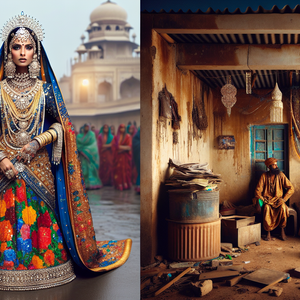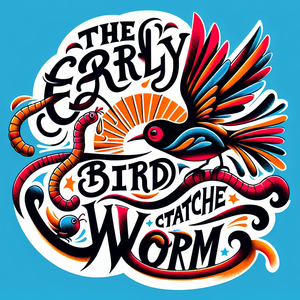Eco-Conscious Couture: Sustainable Manufacturing in LA

The fashion industry has increasingly faced scrutiny over its detrimental impact on the environment, with waste generation and resource depletion coming under fire. In response to this criticism, many manufacturers are re-evaluating their processes to align with sustainable practices. Los Angeles is at the forefront of this transformation, with local clothing manufacturers adopting eco-friendly materials, reducing water consumption, and minimizing waste through innovative production techniques.
Innovative Materials and Practices
A cornerstone of sustainable manufacturing is the selection of materials. Many LA manufacturers are now sourcing organic cotton, Tencel, and recycled polyester, which help diminish reliance on petroleum-based fibers and reduce chemical usage. Notable brands like Reformation and Amour Vert exemplify this shift, prioritizing sustainable fabrics and maintaining transparency regarding their supply chains. Reformation, for example, has developed a unique "RefScale" that quantifies the environmental savings associated with each garment, providing consumers with valuable insight into the ecological impact of their purchases. In addition to material selection, sustainable manufacturing practices extend to production methodologies. Many local manufacturers are adopting zero-waste design principles, which involve creating patterns that utilize every inch of fabric, effectively eliminating excess material. This innovative approach not only conserves resources but also fosters creativity among designers. Furthermore, some manufacturers, like The New Denim Project, are leveraging technology to enhance efficiency and minimize their carbon footprint by recycling old denim into new fabrics. This practice exemplifies how the industry can innovate while addressing waste concerns.
Ethical Labor Practices
Sustainability extends beyond environmental considerations; it also encompasses social responsibility. As Los Angeles's fashion scene evolves, ethical labor practices are gaining prominence. Many local manufacturers prioritize fair wages and safe working conditions for their employees. Brands like Everlane and People Tree are leading the charge by offering transparency in their manufacturing processes, allowing consumers to see where and how their clothing is produced. This commitment to ethical labor practices not only builds consumer trust but also reinforces the notion that sustainability integrates both ecological and social dimensions.
Community Engagement and Education
Sustainable fashion transcends manufacturing alone; it also involves community engagement and consumer education. Numerous LA-based brands are actively working to inform the public about the significance of sustainability in fashion. Through workshops, pop-up events, and collaborations with local artists and influencers, these companies foster a culture of eco-consciousness. For instance, the Sustainable Fashion Forum hosts events that unite industry leaders and consumers to discuss sustainable practices, creating a community dedicated to driving change and awareness.
As the fashion industry grapples with its environmental footprint, Los Angeles emerges as a beacon of hope with its dynamic eco-conscious manufacturing landscape. By prioritizing sustainable materials, innovative production techniques, and ethical labor practices, LA's clothing manufacturers are redefining what it means to be fashionable while remaining responsible. Their collective efforts contribute not only to a healthier planet but also inspire a new generation of consumers to make mindful fashion choices. In an era where fast fashion often dominates, the rise of eco-conscious couture in Los Angeles serves as a powerful reminder that style can coexist harmoniously with sustainability. The movement toward a more responsible fashion industry is not just an aspiration; it is a necessary evolution that we can all support.
Sustainable Fashion Designer
Reformation, Amour Vert, Everlane
Core Responsibilities
Develop creative designs that utilize eco-friendly materials and sustainable practices.
Collaborate with manufacturers to ensure designs adhere to zero-waste principles.
Stay updated on sustainable trends and materials to innovate design techniques.
Required Skills
Proficiency in design software like Adobe Illustrator and knowledge of sustainable fabrics.
Strong understanding of garment construction and production processes.
Experience in ethical sourcing and supply chain transparency.
Supply Chain Sustainability Manager
Patagonia, Eileen Fisher, Stella McCartney
Core Responsibilities
Analyze and optimize supply chain processes to reduce environmental impact.
Develop and implement sustainability initiatives that align with corporate goals.
Collaborate with suppliers to ensure compliance with ethical and sustainable standards.
Required Skills
Experience in supply chain management, with a focus on sustainability metrics.
Strong analytical and problem-solving abilities.
Familiarity with certifications like Fair Trade or Global Organic Textile Standard (GOTS).
Eco-Friendly Materials Researcher
The New Denim Project, Tencel
Core Responsibilities
Conduct research on innovative materials that are sustainable and biodegradable.
Test and evaluate new fabric technologies for environmental impact and performance.
Collaborate with designers to identify suitable materials for new collections.
Required Skills
Background in textile science, chemistry, or materials engineering.
Strong analytical skills and experience with laboratory testing methods.
Passion for sustainable fashion and knowledge of current trends in eco-materials.
Ethical Fashion Brand Manager
People Tree, Everlane
Core Responsibilities
Oversee brand development and marketing strategies focused on sustainability.
Engage with consumers through educational initiatives about ethical fashion.
Monitor brand performance and adapt strategies to promote transparency in sourcing and manufacturing.
Required Skills
Experience in brand management or marketing, preferably within the fashion industry.
Strong communication skills and ability to connect with socially conscious consumers.
Knowledge of digital marketing platforms and social media engagement strategies.
Sustainability Consultant for Fashion Brands
Consulting firms specializing in sustainability, fashion industry NGOs, eco-focused startups
Core Responsibilities
Advise fashion companies on implementing sustainable practices across their operations.
Conduct sustainability assessments and audits to identify areas for improvement.
Develop custom sustainability strategies tailored to brand goals and consumer expectations.
Required Skills
Background in environmental science, sustainability, or fashion management.
Excellent communication and project management skills.
Familiarity with sustainability reporting frameworks and metrics.


